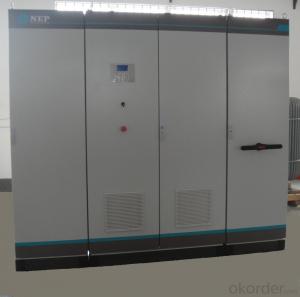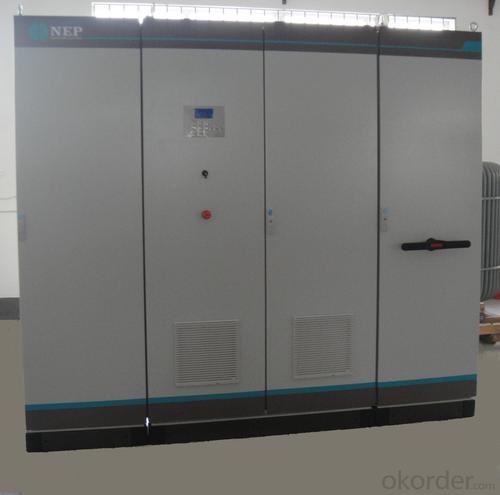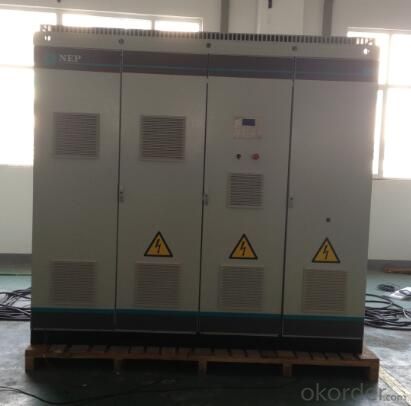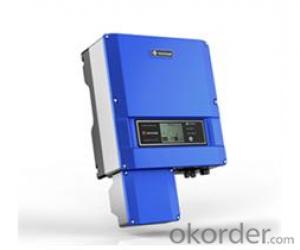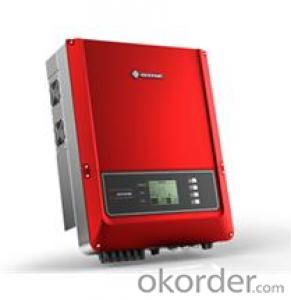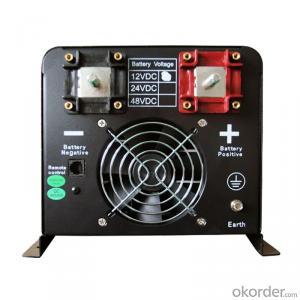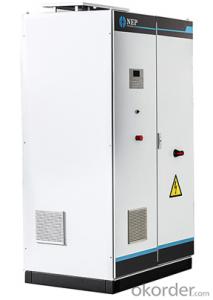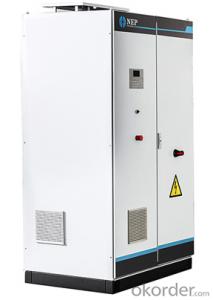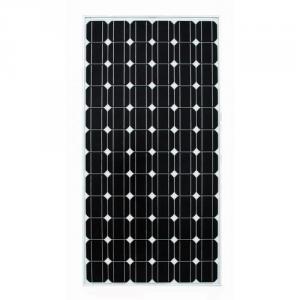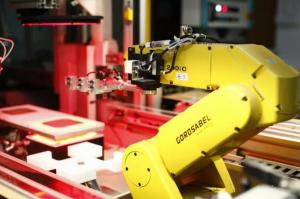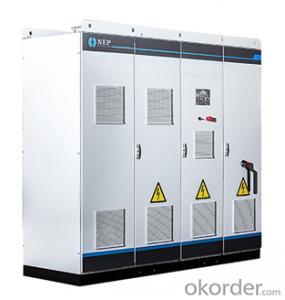Largest Solar Inverter - Super On Grid Tied Solar Inverter BDE-1000K
- Loading Port:
- Qingdao
- Payment Terms:
- TT OR LC
- Min Order Qty:
- 10 unit
- Supply Capability:
- 1000 unit/month
OKorder Service Pledge
OKorder Financial Service
You Might Also Like
Description:
A solar micro-inverter, converts direct current (DC) electricity from a single solar panel to alternating current (AC). The electric power from several micro-inverters is combined and fed into an existing electrical grid. Micro-inverters contrast with conventional string or central inverter devices, which are connected to multiple solar panels.
★ Advanced digital control techniques using the latest DSP Optimized anti-islanding technique for the highest system reliability.
★Optimized Maximum Power Point Tracking technique guarantees the maximum power output from the PV array User oriented Graphic User Interface (GUI) on an integrated.
★ 128*64 graphic VFD and a keypad panel..
★Support multiple communication protocols, including RS232/RS485/Ethernet/Zigbee etc.
★ Complete protection functions to protect against reverse DC polarity,over temperature,over current,short cirucuit,over/under voltage,anti-islanding,etc.
★ Can be used at a wide range of environment temperatures and high altitude.
★ Automatically power-on in the morning and enter a low power mode at night. No local operators required for daily operation
Characteristic & Advantages:
More Energy Harvest: Distributed MPPT allows10~25% more energy harvest
Simple: Modularized,single ac cable to the house
Reliability: Longer life time and almost 100% operation hours
Security: No high Voltage, makes safter environments
Inteligent : Monitoring each module
Savings: No dc components and significantly save labor cost
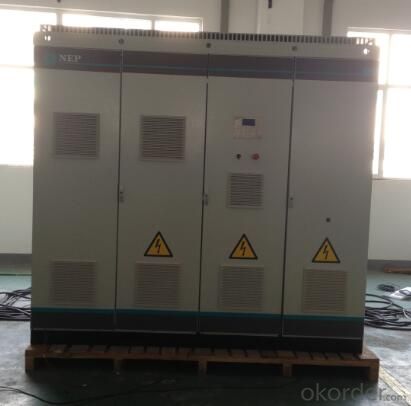
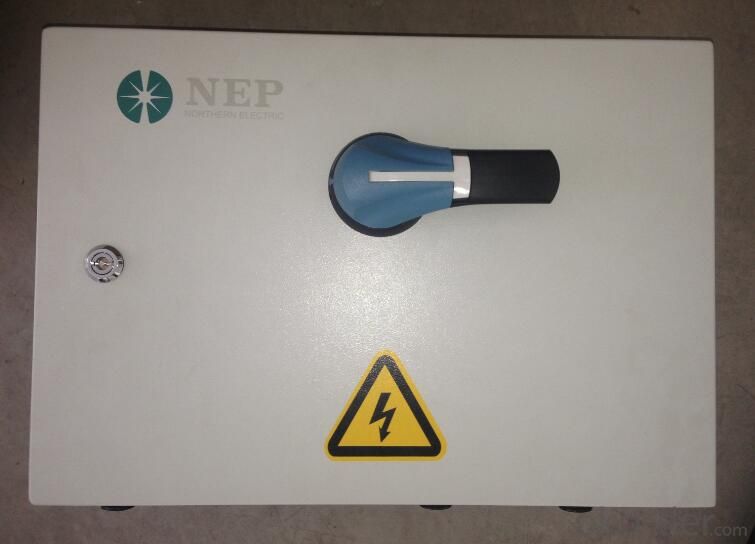
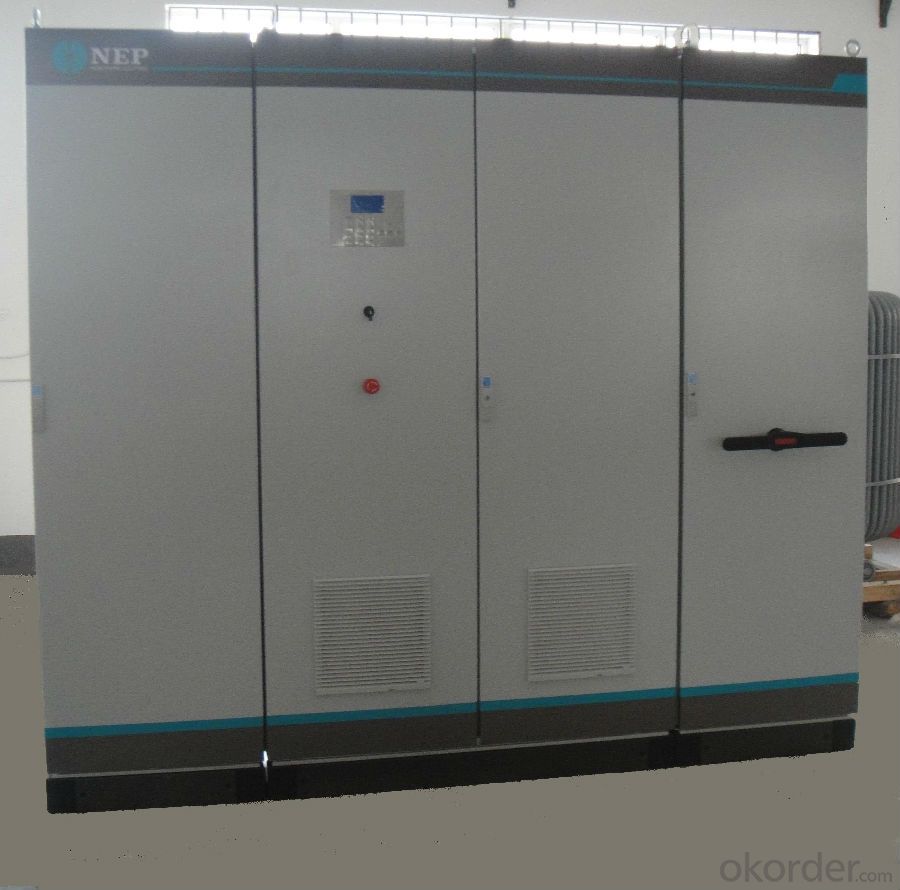
- Q: Can a solar inverter be used with a solar-powered swimming pool heater?
- Yes, a solar inverter can be used with a solar-powered swimming pool heater. A solar inverter is responsible for converting the direct current (DC) energy produced by solar panels into alternating current (AC) energy that can be used to power appliances and devices. In the case of a solar-powered swimming pool heater, the solar panels generate DC energy from sunlight, which is then converted into AC energy by the solar inverter. This AC energy can be used to power the swimming pool heater and heat the pool water using solar energy.
- Q: What are the key factors affecting the warranty coverage of a solar inverter?
- The key factors affecting the warranty coverage of a solar inverter include the length of the warranty period, the brand and reputation of the manufacturer, the quality and durability of the components used in the inverter, and the specific terms and conditions outlined in the warranty agreement. Additionally, factors such as proper installation, maintenance, and usage in accordance with the manufacturer's guidelines can also impact the warranty coverage.
- Q: What is the role of a synchronization circuit in a solar inverter?
- The role of a synchronization circuit in a solar inverter is to ensure that the inverter's output voltage and frequency are synchronized with the utility grid. This is important for two reasons. Firstly, it allows the solar inverter to safely connect and disconnect from the grid, ensuring smooth and seamless operation. Secondly, it enables the solar inverter to inject electricity generated from solar panels into the grid at the correct voltage and frequency, making it compatible with other electrical devices and systems connected to the grid.
- Q: What is the role of reactive power injection in a solar inverter?
- The role of reactive power injection in a solar inverter is to improve the power factor of the system. It helps in balancing the reactive power generated by the solar panels, which is essential for efficient power transmission and distribution. By injecting reactive power, the solar inverter ensures that the system operates at a near unity power factor, minimizing losses and enhancing the overall performance of the solar power plant.
- Q: Can a solar inverter be used in a commercial solar system?
- Yes, a solar inverter can be used in a commercial solar system. In fact, it is an essential component as it converts the direct current (DC) generated by the solar panels into alternating current (AC) that can be used to power commercial buildings and equipment. The solar inverter ensures efficient and reliable energy conversion, making it suitable for both residential and commercial solar installations.
- Q: What is the difference between a centralized and decentralized solar inverter system?
- A centralized solar inverter system refers to a setup where multiple solar panels are connected to a single inverter. In this system, all the panels are connected in series, and the combined DC (direct current) power generated by the panels is converted into AC (alternating current) power by the centralized inverter. On the other hand, a decentralized solar inverter system, also known as microinverters or power optimizers, involves each solar panel having its own dedicated inverter. In this system, each panel operates independently, converting its DC power into AC power directly at the panel level. The main difference between the two systems lies in their architecture and the way power conversion occurs. In a centralized system, the entire array's power output is dependent on the performance of a single inverter. If any one panel in the array underperforms due to shading or malfunction, it can significantly impact the overall system's performance. Additionally, the use of a single inverter can create limitations in terms of design flexibility and system scalability. In a decentralized system, each panel operates independently, allowing for greater flexibility and optimization. The individual inverters in a decentralized system can maximize the power output of each panel, regardless of shading or performance variations. This also means that the overall system performance is less impacted by the underperformance of a single panel. Moreover, decentralized systems offer greater scalability as additional panels can be easily added without the need for significant system redesign. Decentralized systems also provide enhanced monitoring capabilities, as each inverter can provide real-time data on individual panel performance. This allows for easier troubleshooting, maintenance, and identification of any issues within the solar array. In summary, while a centralized solar inverter system is a simpler and more cost-effective option, a decentralized system offers better optimization, scalability, monitoring, and performance reliability. The choice between the two systems depends on factors such as system size, shading conditions, budget, and desired level of control and flexibility.
- Q: Do I need a special inverter for a battery storage system?
- Yes, a special inverter is required for a battery storage system. Unlike traditional grid-tied solar systems, a battery storage system needs an inverter that is capable of converting the direct current (DC) power produced by the batteries into alternating current (AC) power that can be used to power household appliances or fed back into the electrical grid.
- Q: Can a solar inverter be used in systems with different module orientations?
- Yes, a solar inverter can be used in systems with different module orientations. Solar inverters are designed to convert the direct current (DC) generated by the solar panels into alternating current (AC) that can be used to power electrical devices. They are compatible with various module orientations, including both portrait and landscape orientations. However, it is important to consider the efficiency and performance of the solar system when installing modules with different orientations, as it may affect the overall energy production.
- Q: What maintenance is required for a solar inverter?
- Regular maintenance for a solar inverter typically includes visual inspection for dust or dirt accumulation, checking for loose connections, monitoring the inverter's performance, and ensuring proper ventilation. Additionally, it is recommended to clean the solar panels periodically to maximize the system's efficiency.
- Q: Can a solar inverter be used in a solar-powered data center?
- Yes, a solar inverter can be used in a solar-powered data center. A solar inverter is an essential component that converts the DC (direct current) electricity generated by solar panels into AC (alternating current) electricity that can be used to power various devices, including data center equipment. By utilizing a solar inverter, a solar-powered data center can efficiently harness the electricity generated by solar panels and integrate it into its power supply system.
Send your message to us
Largest Solar Inverter - Super On Grid Tied Solar Inverter BDE-1000K
- Loading Port:
- Qingdao
- Payment Terms:
- TT OR LC
- Min Order Qty:
- 10 unit
- Supply Capability:
- 1000 unit/month
OKorder Service Pledge
OKorder Financial Service
Similar products
Hot products
Hot Searches
Related keywords
